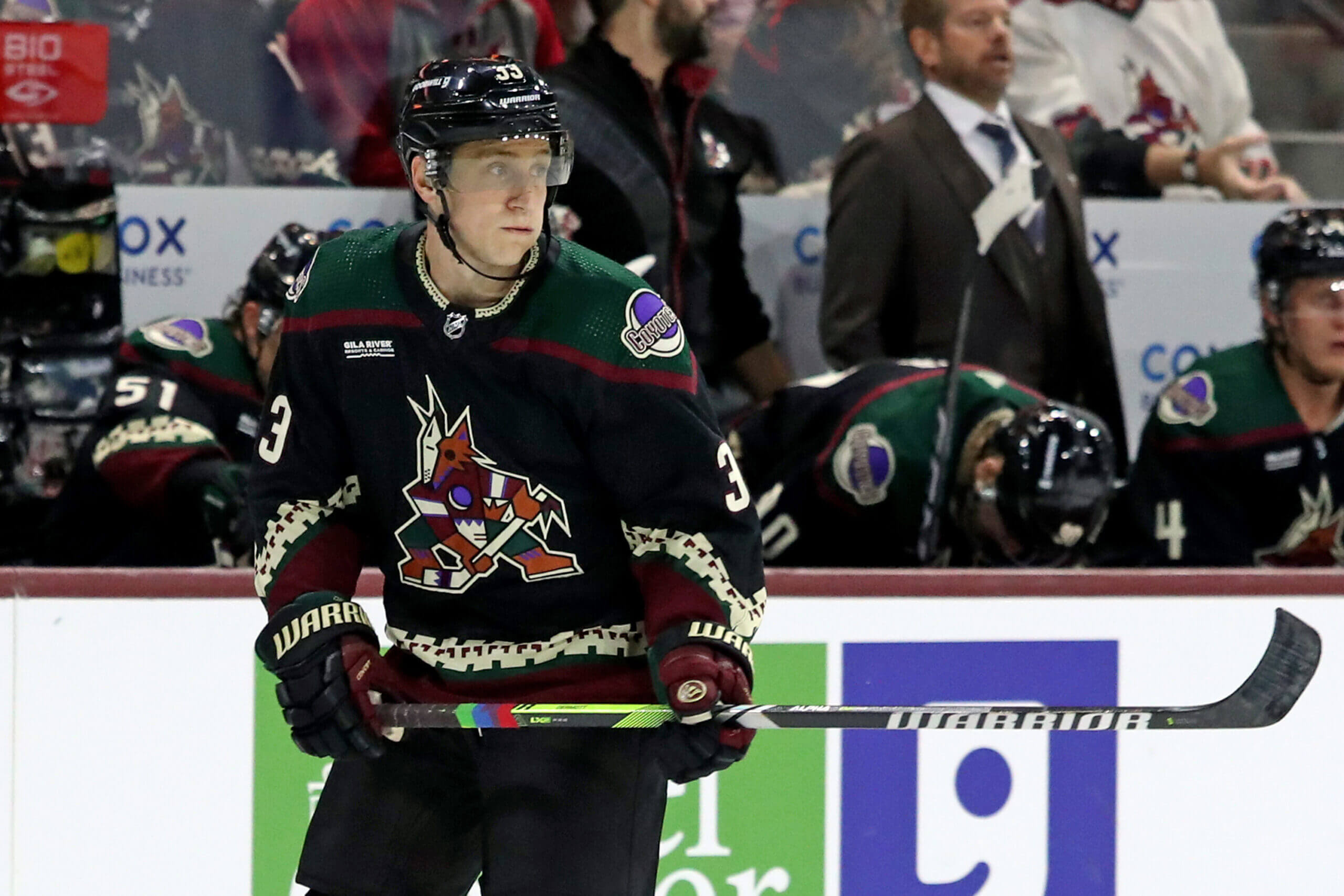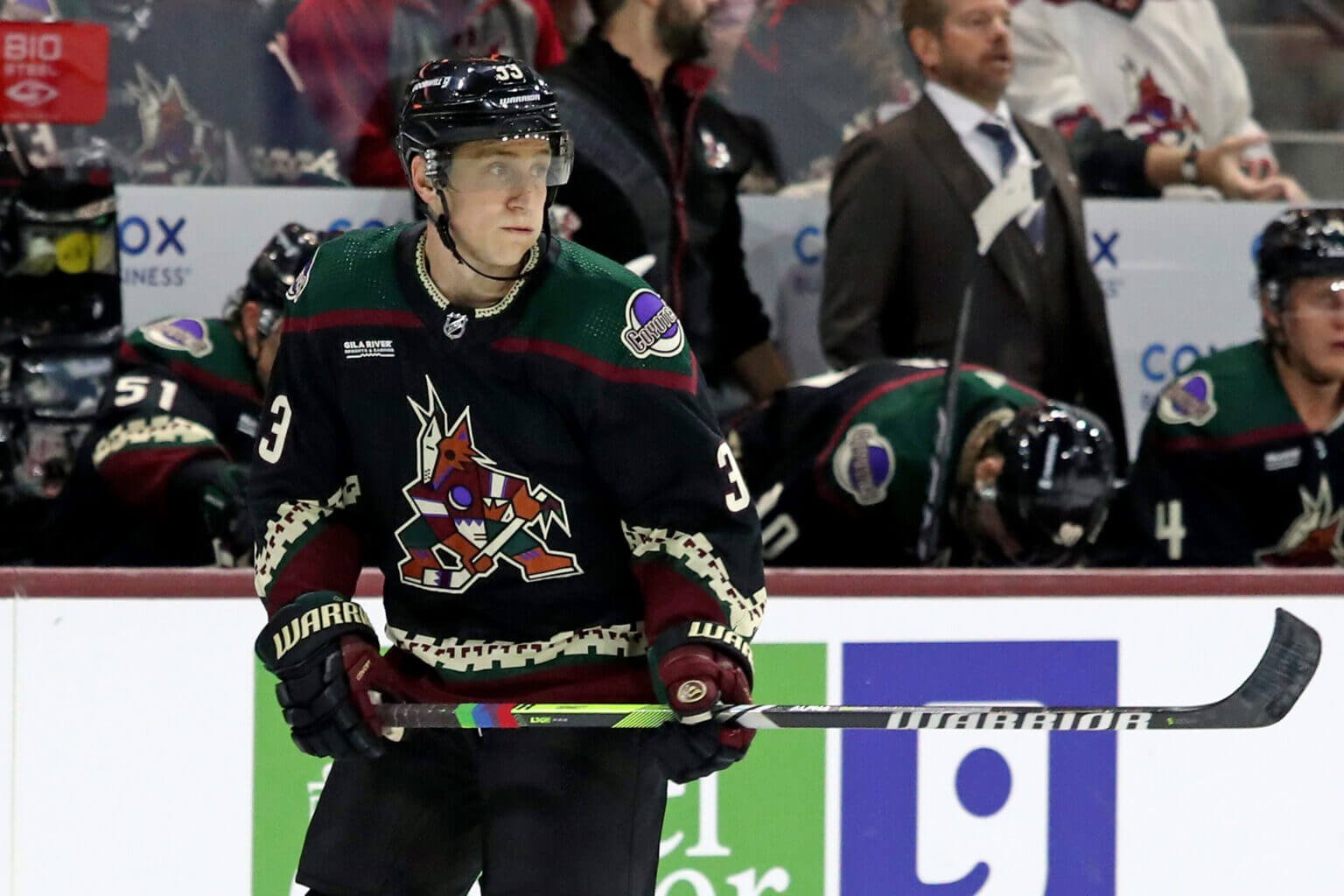From the Pride tape ban reversal to Shane Pinto’s gambling-related suspension, it’s been an eventful week for the executive director of the NHL Players’ Association.
I caught up with Marty Walsh on Friday afternoon over the phone from Boston where he’s currently stationed speaking to teams as part of the NHLPA’s fall tour. Subject matter will not be lacking for those meetings with players over the coming days and weeks.
Advertisement
Let’s begin with the news still dominating hockey circles: Shane Pinto’s 41-game suspension for “activities related to sports wagering.”
The first question I had for Walsh was simple: If Pinto didn’t bet on hockey, as the league made clear in its statement, and NHL players are allowed to bet on other sports, what was he suspended for?
“Well, I mean, there are rules and regulations in the collective bargaining agreement, and the league felt that there were issues that crossed the line,” Walsh said. “They did an investigation of the situation, and they came back, talking and working with the player, the league and the team, it was agreed upon that 41 games would be the penalty, if you will, for Shane’s actions.
“There’s a collective bargaining agreement, and there’s terms in the collective bargaining agreement. I’m not going to get into all the terms of what it states there, but clearly there were issues there that rose to the level of the commissioner getting involved and the union getting involved on behalf of the player.”
My TSN colleague Darren Dreger spelled out some of what seems to have happened on Insider Trading on Thursday evening, but the point here is that neither the league nor the NHLPA are confirming any details.
From @DarrenDreger, @PierreVLeBrun & @reporterchris – What led to Senators forward Shane Pinto’s 41-game suspension, how it impacts his ability to sign a new contract and why other teams are curious to know more about what happened: https://t.co/RPvu7TPkia
— TSN Hockey (@TSNHockey) October 26, 2023
And, as our Chris Johnston writes, there’s a good reason that the NHLPA, the league and the player’s agent aren’t willing to confirm more about what transpired — there’s an agreement not to, and they are legally turning the page.
“That’s fair,” Walsh said. “And I think there’s a lot of speculation. I’ve heard all kinds of rumors and stuff, and the rumors which I won’t repeat aren’t necessarily true.”
Advertisement
The way Walsh sees it now, there is an opportunity to learn from it.
“I went to the rookie orientation camp this year for the first time, and they talked about gambling and the concerns with gambling,” he said. “Not just in hockey but gambling in general. … The rookie orientation camp has an explanation of dos and don’ts with gambling, and the NHLPA will be educating players moving forward as well. We’ve begun the fall tour here. We talk about it on the fall tour, and we’ll continue to talk to players about circumstances so they don’t get themselves into trouble. Because sometimes the trouble is not intentional trouble. It’s not meant to be trouble, but they don’t realize that it is.”
No doubt players around the league will want to know how to safeguard themselves from what happened with Pinto, and that’s a question Walsh will be getting from them.
“We’re looking at other situations in sports, too, that have happened,” Walsh said. “You give people hypotheticals just making sure that when players are deciding to gamble that they understand all the aspects of gambling, that they have to do it the right way, understanding that not every state has these platforms. You have to make sure that you’re in the right place to do the gambling and things like that. Making sure the concern about addiction when it comes to gambling and the ability to get yourself into trouble really fast gambling. That’s another component of it that’s a big concern — to make sure the players aren’t getting in over their heads.
“Obviously, there’s no gambling on hockey in any manner. And they know it. That’s a given. But just to reinforce it with players.”
What’s not on the table for the NHLPA is stripping away players’ ability to gamble on other sports. Walsh feels that’s not an option, even if he understands the slippery slope.
Advertisement
“I come at it from the standpoint of being in recovery myself,” Walsh said. “Gambling’s not part of my story — alcohol is — but I don’t think it’s fair to say to the players that if the public, that if every person gets a chance to use these platforms to gamble, the players should be banned from it. I don’t think that’s the right way to go.
“These folks are adults. There’s some younger players in the league obviously, but they’re adults.”
The key is to make sure safeguards are in place, Walsh added.
“My bigger concern is to make sure hockey players understand the importance of betting responsibility, being careful, on the gambling platforms as far as becoming addicted to it and getting yourself in trouble that way or whatever it might be,” Walsh said. “This conversation is going to evolve.”
As Walsh said, depending on where you live, some of these legalized gambling platforms haven’t been around that long — or still aren’t. So it’s an evolving conversation, and Walsh wants to make sure the NHLPA does all it can to protect the players.
“We have to make sure that this is a topic that the players are educated on completely,” Walsh said.
Pride tape ban reversal
Just 48 hours before the Pinto suspension, the league announced that after consultation with the NHLPA and the NHL Player Inclusion Committee, “players will now have the option to voluntarily represent social causes with their stick tape throughout the season.”
The league ban, which originally was detailed in a memo about four weeks ago, covered all social causes, but the one that created the backlash was Pride tape.
Walsh and the NHLPA took their share of criticism at first for seemingly signing off on it — or at the very least not protesting it before it went out to teams.
Once news of the memo started to leak, the reaction was fierce.
Advertisement
“From the moment the memo went out, immediately there was backlash — immediately I was having conversations with commissioner Bettman, with the Player Inclusion Committee, and with You Can Play,” Walsh said.
“The commissioner had a meeting with the Player Inclusion Committee, which I was part of. Then the commissioner thought through the policy, and we had a conversation and reversed the policy.”

Walsh added it’s unfortunate that it happened to begin with. From his time in the Massachusetts state legislature, where he supported same-sex marriage, to supporting the LGBTQ+ community while he was Boston’s mayor, Walsh has shown where he stands on these issues.
But he was criticized for not saying anything when the Pride tape ban first surfaced. The reason he didn’t, he said, was that he was immediately focused on trying to find a solution behind the scenes. It shouldn’t have been construed as his being OK with it.
“When the memo came out, I saw the memo, and I wasn’t necessarily supportive of the memo, but unfortunately the memo went out and I didn’t publicly make a comment because I was working with the commissioner (to reverse the ban),” Walsh said.
It’s not his style, Walsh said, again going back to his political career, to negotiate through the media. He wants to get the work done behind the scenes instead. So that’s what he focused on.
“With this, there’s been a reversal and a step in the right direction,” Walsh said. “What we need to do now is make more steps in the right direction.”
As Walsh pointed out, there are still Pride nights planned across the league for every team this year.
“One thing that’s important for me to state here today is that hockey needs to be and is and should always be an inclusive sport,” Walsh said.
(Photo: Lev Radin / Pacific Press / LightRocket via Getty Images)
